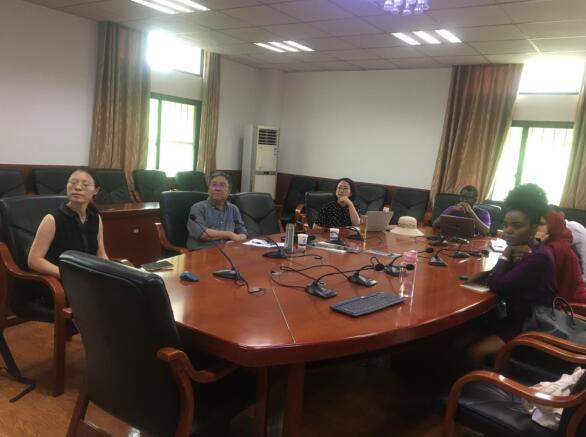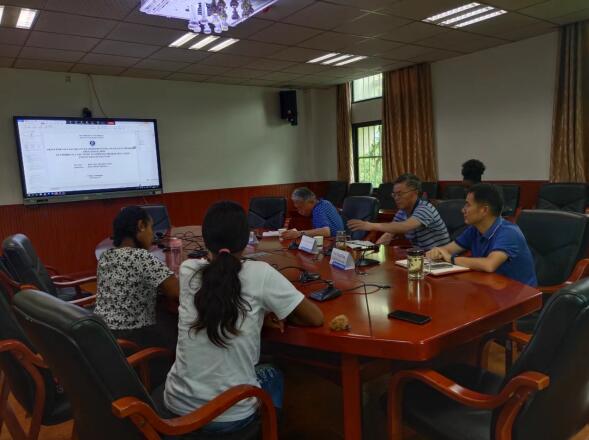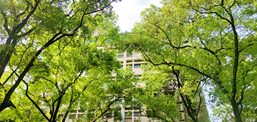留学生举行毕业论文进展报告及学术指导会
发布时间:2022-07-01 16:54作者:来源: 浏览次数:
2022年6月27、28日下午,BET体育365投注官网2019级留学生在田家炳504举行学术沙龙,暨毕业论文进展报告及学术指导会。本次会议采取线上线下混合模式,特别邀请徐辉教授、钟婉娟副教授、王牧华教授、徐学福教授、么加利教授作为专家,对Bahtilla Marinette等11位博士同学的学位论文写作进行指导。本次会议由2019级留学生班主任胡燕娟副教授主持。
The Faculty of Education, Southwest University (SWU) in its quest to improve the knowledge, presentation capabilities, and research skills of all students,initiated the “Academic Salon” program where students share ideas on an educational issue across the globe, and in turn, gets feedback from experts and professionals in the educational field. Since its inception, the salon has helped all students through the expert’s feedback in building their confidence and research self-efficacy.
The two-day academic salon, i.e. dissertation progress report and consultation,was organized with the aim of identifying the challenges of final-year doctoral students regarding their thesis. This was done as a pre-requisite to the pending progress report check in the fall semester. The salon involved eleven (11) presenters split into five presenters for the first day and six for the next day. It was hosted by Associate Professor Hu Yanjuan, the headteacher of the 2019 batch of students. Both salons took place online (via DingTalk) and offline (Tianjiabing Building, Room 504). The first salon was organized on 27thJune 2022 with two experts: Professor Xu Hui and Associate Professor Zhong Wanjuan. The second salon which occurred the day after (28thJune 2022) had three experts: Professor Wang Muhua, Professor Xu Xuefu, and Professor Yao Jiali. The experts provided critical and constructive suggestions to each of the presenters to enhance their work and also helped them navigate through the challenges they might be encountering in writing the dissertation report.
Thefivepresenters of the first salon were Bahtilla Marinette, Kalim Usama, Parveen Khalida, Amponsah Benjamin Kwasi, and Khamphouvong Latdavone. The salon started at 14:08 PM and ended at 16:46 PM. The two doctoral candidate Amponsah, Benjamin Kwasi from Ghana and Khamphouvong, Latdavone from Laos presented online via DingTalk while the others presented in person.

First salon day (June 27, 2022).
The first presenter Benjamin touched on the topic;“school leadership influence on the implementation of Information Communication Technology (ICT) in teaching and learning in rural public schools in Ghana.”He talked about the importance of ICT in education and the need to integrate ICT in schools, especially those in deprived areas in Ghana.
Experts’ Feedback: He was suggested to revise the terminologies “implementation”, “influence”, “teaching and learning” in his topic, and give a rationale for his sampling technique. What impressed the experts was the demonstration of the reliability and validity of the instruments used in the study.
Marinettewas the second presenter. The caption of her topic was“the impact of research management practices on students’ engagement in research in English-speaking universities, Cameroon.”In the mixed-method study, the core claim is that the research output in many higher education institutions in African countries is regarded as low. She sought how school management fosters student engagement in research in some selected universities in Cameroon.
Experts’ Feedback: Generally, she did a good presentation. Suggestions to her were for her to focus on the research context of his university and also several important issues such as research funds. She was advised to link her research findings to previous literature and make an adjustment to the system theory used as a theoretical framework.
Usama, the third presenter investigated“principal leadership styles and its impact on teachers’ job satisfaction in the high-low performing public schools of rural Punjab, Pakistan.”
Experts’ Feedback: Experts informed him about the myriad research on the topic. The leadership styles mentioned were seen to be “broad” and “simple.” He was asked if he can investigate an interesting relationship between the variables of the study. The research design was also deemed simple. He was commended on the clarity in his presentation.
Khalida presented on“a school improvement maturity model for public secondary schools pf Faisalabad city, Pakistan”. She emphasized on some challenging factors that curtail school improvement and some success factors that facilitates school improvement. A model was presented in the presentation,
Experts’ Feedback: She was advised to focus on the empirical aspect of the study than the theoretical. The experts had objections about the title of the study. The expert suggested that she should focus on the holistic operation of the whole organization and not only the principals.
The last presenter for the day, Latdavone talked about the“influence of deans’ leadership style and teachers’ research motivation on teachers’ behavior in conducting research in public universities ofLaos.”She assumed that leaders can influence the research motivation of teachers and this will in turn affect their research behavior.
Experts’ Feedback: She was advised to pay close attention to the conceptual framework of her study. It was also suggested that she gives a rationale for some of the claims in the study and provide a response to hypothesis generated for the study. It was mentioned that it might be difficult to examine the relationship between the three variables.
Thesixpresenters of the second salon were Tran Quang Bao Phuc, Mekonen Yohana Kifle, Nweze Chiamaka Nneoma, Saira BiBi, Rose Mbuli Sam, Nabila Ghassani. The salon started at 14:10 PM and ended at 17:05 PM. The four doctoral candidate Tran, Quang Bao Phuc from Vietnam, Rose Mbuli Sam from Tanzania, Saira BiBi from Pakistan, and Nabila Ghassani from Indonesia presented online via DingTalk while the others presented in person.

Second salon day (June 28, 2022).
Bao Phuc talked about the “effect of faculty deans’ leadership styles on faculty members’ job satisfaction: an empirical study at private higher education institutions in Vietnam.”
Experts’ Feedback: He was asked why he focused on three leadership styles outlined in his study. It was mentioned that although traditionally leadership styles may have an influence on teacher job satisfaction, it could be that teacher job satisfaction also can influence leadership style. He was advised to focus on context.
Yohana presented on“exploring the role of school structure for enhancing teacher leadership in schools of Asmara, Eritrea.”In general, she looked at several dimensions of school structure based on axiomatic theory and how they promote leadership practices among teachers.
Experts’ Feedback: One expert believed the title presented was somewhat different from the findings of the study. She was asked to clarify what she meant by school structure and examine the relationship it has with teacher leadership. The six categories of school structure was also discussed by the experts.
Chiamaka talked about“the effect of principal instructional leadership on student achievement: the case of secondary schools in Enugu state, Nigeria.”Her research was motivated by the inability of prior studies that combine principal instructional leadership and teacher self-efficacy's effect on student achievement.
Experts’ Feedback: She was asked to address the use of principal leadership and principal instructional leadership interchangeably in her study to bring out the key differences. Also, it was mentioned that she should ensure her research objectives, purpose, and research questions are in alignment with her topic. A concern for the experts was the difficulty in examining the direct effect of principals on student outcomes.
Saira looked at “the impact of principal leadership style and teacher job performance in public schools in Pakistan.” She argued that based on the leadership practices of principals, teacher performance with regards to their performance might differ (increase or decrease).
Experts’ Feedback: Her supervisor made a call to her to ensure constant communication with him to discuss her study. She was questioned if the three mentioned leadership styles were prevalent in her context. The experts were unsure of what she meant by teacher job performance and asked for clarification.
Rose’s presentation was on“exploring the influence of organizations supports on teachers’ development in public primary schools in Tanzania.”She mentioned that the professional development of teachers is in a way determined by the level of organization support available.
Experts’ Feedback: The complaints of the experts had to do with the smaller fonts of texts in her presentation which made it difficult for them to follow the presentation. She was asked to pay close attention to her title & what organization support entails. One expert suggested she study about professional learning community (PLC) as it had a link with her current study. Her conclusion needed revisions to provide an overall summary of her study.
The last presenter for the day, Nabilla, looked at “the correlation of teacher’s self-efficacy and ICT utilization in teaching and learning in public primary school, Jakarta, Indonesia.” The thrust of her presentation was that there is a link between the self-efficacy of teachers and their ICT use.
Experts’ Feedback: According to an expert, self-efficacy has to do with an inner feeling and it’s difficult to investigate its relationship with ICT use. She was advised to talk with her supervisor to make an adjustment to her title. It was mentioned that the objectives of her study had little to do with what she wants to find. A concern for the panelists was the appropriateness of her study in connection with her major.
In conclusion, the objective of the salon was to help doctor students improve their thesis before the incoming progress report. By identifying key issues of concern through expert opinions, doctor students will be able to correct issues that need to be addressed early enough. After each presentation, the experts gave their candid opinion and students were given the chance to give their suggestions or ask questions. The presenters also had the opportunity to respond to questions and all opinions.
撰稿:Michael Agyemang Adarkwah
初审:胡燕娟
复审:王 雪
终审:罗生全
- 关于BET体育365
- 部徽
- 部训
- 部长寄语
-
bet体育365官网正规教育学为“双一流”建设学科。BET体育365投注官网是办学历史悠久的研究型学部,1984年获教学论博士学位授权点,2003年获教育学一级学科博士学位授权,2007年课程与教学论获批国家重点学科,在教育部第四轮学科评估中被评为A类学科。【点击查看详细介绍】
地址:重庆市北碚区天生路2号田家炳教育书院 电话:023-68252305 网址:jyxb.swu.edu.cn
-
BET体育365投注官网
The Faculty of Education , Southwest University
-


